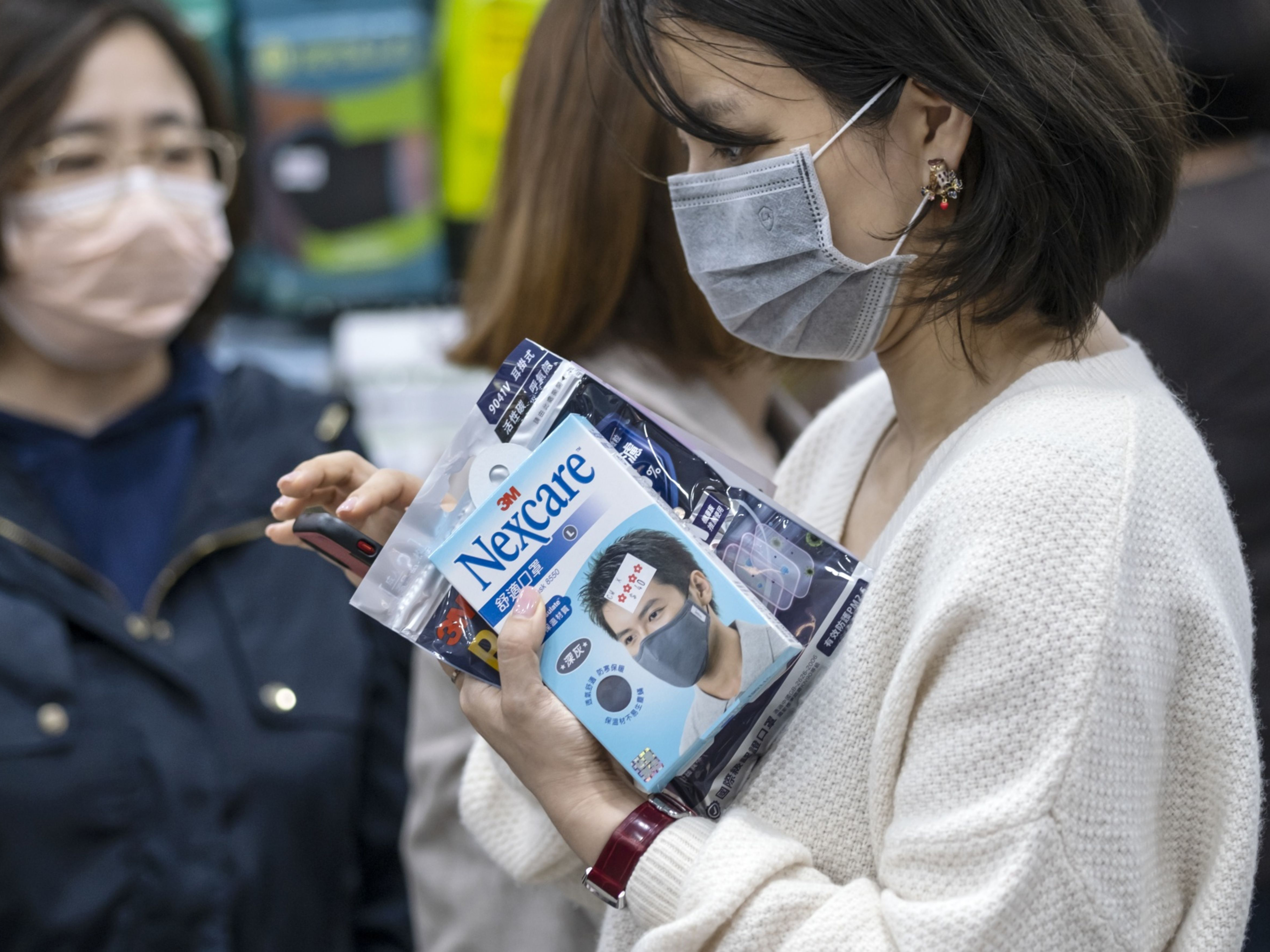
Home » Virus Deaths Stir Calls in China to Clean Up Air Pollution
Virus Deaths Stir Calls in China to Clean Up Air Pollution

April 2, 2020
The coronavirus is teaching China an expensive lesson in public health: There is a huge cost to poisoning your air.
The virus that has killed more than 3,200 people in the country and threatens to wipe out $2.7 trillion from the global economy is raising questions about how decades of air pollution affected China’s ability to control the spread of COVID-19 and minimize the number of critical cases. As China’s economy begins to rebound, government officials and citizens are calling for an increased effort not only to improve the public health system that strained under the pandemic, but to clean up an environment that’s damaging people’s health.
“We paid people’s lives for the lesson, and we should never do it again,” said Cai Xue’en, a delegate of the National People’s Congress and adviser to China’s supreme court. “I think environmental protection will rank even higher for both the central and local governments.”
Medical researchers say more work is needed to establish if there is a direct link between lung damage from air pollution and the ability of a patient to fight off COVID-19. But a 2003 study by researchers in China and the U.S. into the mortality rates from SARS showed that patients from areas with a high air pollution index were twice as likely to die from the virus as those in areas where the index was low. The new virus is also prompting other places where COVID-19 spread rapidly, from Italy to the U.S., to question the link with pollution.
“It will take time before we know from research about the exact impacts,” said Professor Fang Jing, Kunming Medical University. “But generally speaking, both air pollution and the coronavirus damage people’s lungs, so when the two work on somebody’s health together, that person is more likely to become critically ill.”
Economies Restart
As economies in China and then Europe were whacked by the effect of the virus, one of the immediate impacts was to curb emissions as power stations stopped working and planes were grounded. The slowdown took out the equivalent of almost 1.5 billion tons of carbon dioxide in China and could curb global emissions from air travel by 11% to 19%, according to a March 11 report by Bloomberg Intelligence. That reduction may be short-lived though, as China prioritizes getting its factories and businesses going again, bringing traffic back onto the streets and restarting idled power stations.
“In the short term the virus will have a negative impact” as the economy begins to recover, said Xu Jintao, a professor of environmental economics at Peking University’s National School of Development. “There are already signs China might go back to more coal and stimulate heavy industries, but I don’t think the negative impacts on China’s climate and environment goals will last long. Chinese people increasingly care about health, which is closely related to the air, water, soil quality as well as the whole environment.”
Before the virus hit, President Xi Jinping had already made the environment a key policy driver for the country, switching millions of northern homes from coal heating to gas or electricity, declaring a “war” on unrecycled garbage, and investing hundreds of billions of dollars in renewable energy. Still, it has struggled to reduce the use of coal in power stations, one of the biggest contributors to air pollution. That may change as the pandemic has turned health into a major social concern.
Even as the nation begins to recover from the worst of the virus, social media is beginning to see more traffic about the lessons that should be learned. On Weibo, China’s Twitter-like platform, one user urged the government to carry out reforms to improve the environment and medical facilities. Another wrote: “We should apply same amount of effort we put in containing the virus into things like promoting environmentally friendly cars, sorting garbage and planting more trees.” People have learned that healthy food and clean industries are the most important things, “not money,” said a third.
Health campaigners say the problem isn’t just in China. The European Public Health Alliance warned on March 16 that a rise in diesel-powered vehicles in the past two decades had increased pollution levels and that those living in polluted cities were more at risk from COVID-19. It said northern Italy was one of the hot-spots for such pollution. Doctors in California, which has some of the worst air pollution in the U.S., also said poor air quality could make people more susceptible to infection.
Serious Problem
“Urban air quality has improved in the last half century, but petrol and especially diesel vehicle fumes remain a serious problem,” Sara De Matteis, Associate Professor in Occupational and Environmental Medicine at Cagliari University in Italy, said on the group’s website. “By lowering air pollution levels we can help the most vulnerable in their fight against this and any possible future pandemics.”
In China, Beijing has to balance the long-term health of its citizens against the negative effects on people’s welfare from an economic slump. That may mean interim measures to ease off on tightening laws for air pollution and encouraging renewable energy, including delaying tougher laws on tailpipe emissions for automakers and supporting airlines.
But as the country becomes more aware of the cost of the old economic model, more stimulus could end up being directed toward greener solutions that could help lessen the economic blow of respiratory disease and reassure the nation’s growing middle class that their children won’t have to keep paying the price of toxic air.
“So many people died from pollution,” said Cai, who is also a committee member of non-government environmental group Alashan Society of Entrepreneurs and Ecology in Inner Mongolia. “It’s painful to accept the truth, and it’s difficult to admit the problems, but we can turn the pain into power.”
RELATED CONTENT
RELATED VIDEOS
Subscribe to our Daily Newsletter!
Timely, incisive articles delivered directly to your inbox.
Popular Stories

2024 Supply Chain Management Resource Guide: There's Only One Way Off a Burning Platform
VIEW THE LATEST ISSUECase Studies
-
Recycled Tagging Fasteners: Small Changes Make a Big Impact
-

Enhancing High-Value Electronics Shipment Security with Tive's Real-Time Tracking
-

Moving Robots Site-to-Site
-
JLL Finds Perfect Warehouse Location, Leading to $15M Grant for Startup
-
Robots Speed Fulfillment to Help Apparel Company Scale for Growth



